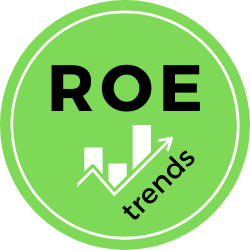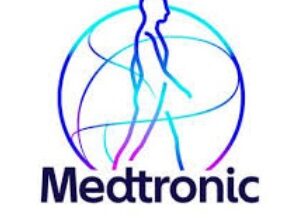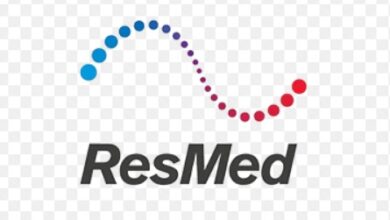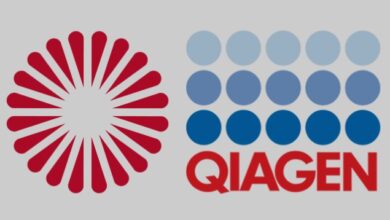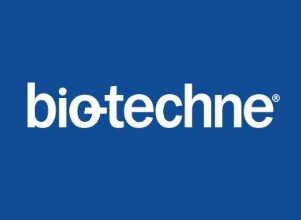GSK stock analysis
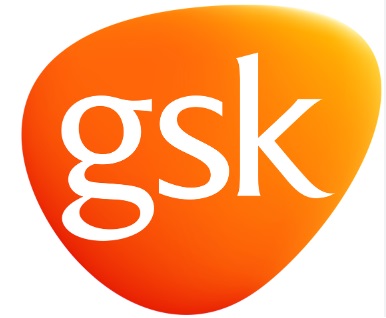
GSK plc (GSK) is a prominent global biopharmaceutical company with a diverse portfolio of prescription medicines, vaccines, and consumer healthcare products. Known for legacy brands like Sensodyne, Panadol, and Advil, GSK has a long-standing presence in the healthcare industry. However, in recent years, GSK has undergone significant transformation, including the spin-off of its consumer healthcare division (Haleon) to sharpen its focus on vaccines and specialty medicines. This article presents a comprehensive GSK stock analysis, evaluating the company’s Return on Equity (ROE), growth strategy, strengths, weaknesses, and the competitive landscape in the evolving pharmaceutical industry.
What is ROE, and Why Does it Matter for GSK Investors?
Return on Equity (ROE) is a crucial financial metric that measures a company’s profitability relative to shareholders’ equity. A higher ROE generally indicates better financial performance and stronger returns for investors holding GSK stock.
GSK’s ROE: A History of Transformation and Growth
| Year | ROE (%) |
|---|---|
| 2013 | 18.2 |
| 2014 | 19.5 |
| 2015 | 21.1 |
| 2016 | 23.6 |
| 2017 | 21.8 |
| 2018 | 19.4 |
| 2019 | 17.9 |
| 2020 | 16.5 |
| 2021 | 18.2 |
| 2022 | 20.7 |
| 2023 | 23.0 |
| 2024 | 25.0* |
*Projected
GSK has adapted well to the changing healthcare landscape, and its ROE over the past decade reflects this. The company has delivered consistent returns for investors, showcasing its ability to navigate challenges and capitalize on new opportunities.
Key Trends in GSK’s ROE Analysis:
- Steady but Moderate ROE: GSK has maintained a stable ROE, generally ranging from the high teens to low twenties, indicating consistent profitability.
- Fluctuations: Fluctuations in ROE can be attributed to factors like drug development cycles, patent expirations, competition, and strategic decisions, such as the Haleon spin-off.
- Recent Growth: The ROE has shown notable growth in recent years, likely driven by the success of newer vaccines and specialty medicines, along with streamlined operations.
- Projected Increase: The projected ROE for 2024 indicates a further increase to 25%, suggesting that GSK’s strategic initiatives and new product launches are expected to enhance profitability.
Investors should consider this ROE data alongside other financial metrics and qualitative factors, such as growth prospects, the pipeline of new drugs, and competitive position, to make informed investment decisions.
Understanding GSK: A Focus on Vaccines and Specialty Medicines
To fully assess GSK’s investment potential, it’s essential to evaluate its strategic direction, strengths, weaknesses, and competitive landscape.
GSK’s Purpose: “To unite science, technology, and talent to get ahead of disease together.”
GSK aims to prevent and treat diseases with a strong emphasis on vaccines and specialty medicines, including:
- Vaccines: Developing vaccines for a wide range of infectious diseases, with a notable presence in the shingles vaccine market through Shingrix.
- Specialty Medicines: Concentrating on therapeutic areas such as HIV, oncology, immunology, and respiratory diseases.
- Innovation and R&D: Investing heavily in research to discover new treatments and vaccines.
- Global Health: Addressing global health challenges, especially in developing countries, through access programs and partnerships.
Strengths
- Strong Vaccine Portfolio: GSK is a global leader in vaccines, with a broad range of products for infectious diseases, including Shingrix, Bexsero, and Fluarix.
- Specialty Medicines Focus: GSK excels in specialty medicines, with key drugs like Dovato, Trelegy Ellipta, and Nucala.
- R&D Innovation: GSK has a strong record of innovation in developing new vaccines, specialty medicines, and drug delivery technologies.
- Global Reach: With operations in numerous countries, GSK has a significant global presence, enabling it to serve patients worldwide.
Weaknesses
- Patent Expirations: GSK faces challenges associated with patent expirations, which can lead to increased competition from generic drugs.
- Intense Competition: The pharmaceutical industry is highly competitive, with numerous companies vying for market share.
- Past Challenges: GSK has encountered challenges in recent years, including pipeline setbacks and legal issues.
- Reliance on Key Products: Despite a diversified portfolio, GSK’s performance can be heavily influenced by the success of its key blockbuster drugs.
GSK’s Competitors: The Pharmaceutical Landscape
GSK operates in a competitive global pharmaceutical market, facing formidable players such as:
- Johnson & Johnson: A diversified healthcare giant with a broad portfolio of pharmaceuticals and medical devices.
- Pfizer: Renowned for its innovative medicines and vaccines.
- Novartis: A global healthcare company focused on pharmaceuticals and eye care.
- Roche: Specializes in oncology, immunology, and diagnostics.
- Eli Lilly and Company: A major player in diabetes, oncology, and immunology.
GSK’s Key Projects
- Vaccine Pipeline: Developing new vaccines for infectious diseases, including RSV and meningitis.
- Oncology Pipeline: Expanding its oncology portfolio with new cancer therapies, including Blenrep and Zejula.
- HIV Franchise: Continuing to develop new HIV treatments and prevention strategies.
- Immunology and Respiratory Diseases: Developing therapies for immune-mediated diseases and respiratory conditions.
GSK’s Future: Focusing on Vaccines and Specialty Medicines
GSK’s future will hinge on its ability to innovate, bring new therapies and vaccines to market, and compete effectively in the evolving pharmaceutical landscape. Key factors influencing its success include:
- R&D Productivity: The company’s ability to discover and develop effective treatments and vaccines will be crucial for long-term growth.
- Commercial Success: Successfully launching and marketing new drugs and vaccines is essential for generating revenue and maintaining profitability.
- Competitive Landscape: GSK must compete effectively with other pharmaceutical companies in a dynamic market.
Is GSK (GSK) Stock a Good Investment?
GSK is a global healthcare leader with a strong emphasis on vaccines and specialty medicines. The company has a solid record of innovation and is well-positioned to benefit from the growing demand for healthcare solutions. However, investors should carefully weigh the risks and opportunities associated with investing in the pharmaceutical industry, including competition, patent expirations, and regulatory challenges.
Conclusion
This GSK stock analysis underscores a compelling investment case, but potential investors must remain informed about market dynamics and the company’s strategic initiatives. With its commitment to innovation and addressing serious health challenges, GSK continues to be a key player in the biopharmaceutical sector, navigating challenges while striving for sustainable growth.
